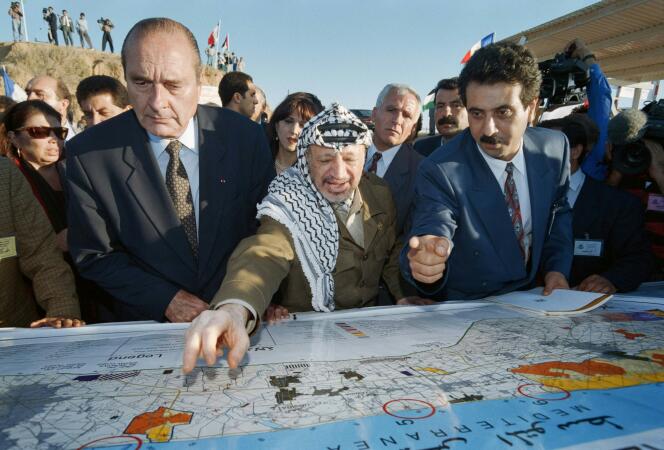


Before Israel's blockade of the Gaza Strip in 2007 cut it off from the rest of the world, the Palestinian enclave welcomed prestigious foreign figures over the years. Gamal Abdel Nasser waited two and a half years after taking power in Egypt, which supported Israel's blockade, before visiting Gaza in March 1955. The enclave had been under Egyptian administration since the 1949 armistice with Israel.
The Palestinian territory, marked by its militant effervescence, did not hesitate to demonstrate against the "dictator Nasser," before endorsing Egyptian tutelage as a lesser evil in the face of the Israeli threat. It was during a visit to Nasser's Egypt that three leading figures of the international left traveled to Gaza.
Ernesto "Che" Guevara visited Gaza in June 1959 on the crest of the wave of the Cuban revolution's success five months earlier. Fidel Castro sent his Argentine comrade on a long tour of the emerging Third World. Received by Nasser in Cairo, Che then traveled to the Gaza Strip, where he was always in the entourage of Egyptian officials, including during his visit to refugee camps.
The memory of the brief stay and the aura of the indomitable rebel would make "Guevara" an ever-popular first name in the Gaza Strip, as well as in the rest of Palestine, for both boys and girls, especially in progressive families (a Marxist guerrilla killed in an Israeli ambush in March 1973, after a long hunt, was nicknamed the "Guevara of Gaza").
In September 1964, Malcolm X visited the Khan Yunis refugee camp in the south of the Gaza Strip. The African American human rights activist had converted to Sunni Islam a few months earlier, completing his pilgrimage to Mecca at the time. He met Palestinian clerics, but also a poet, a survivor of a massacre perpetrated in 1956 by the Israeli army, whose verses he transcribed in his diary: "We must return / No boundaries should exist / No obstacles can stop us / Cry out refugees: 'We Shall return'."
Back in Cairo, Malcolm X published a scathing critique of Zionism, denying it any right over "Arab Palestine" and accusing it of being no more than a "new form of colonialism." It was a stark contrast to Sartre, who confined himself to expressing purely humanitarian compassion during his visit to the Gaza refugee camps in March 1967. The Palestinians, who were expecting solidarity of a political nature, made no secret of their disappointment.
The only major figure to visit Gaza after its occupation by the Israeli army in June 1967 was former French president François Mitterrand (2012-2017). He went in March 1972 as the leader of the French Socialist Party, historically close to the Israeli Labor Party that was in power at the time. Mitterrand met Rashad al-Shawa, the moderate mayor of Gaza, who would however be dismissed by the Israeli governor a few months later. The Socialist leader was particularly struck by the misery of the refugee camps, which led him to be one of the first European leaders to speak out in favor of a Palestinian state.
You have 34% of this article left to read. The rest is for subscribers only.
